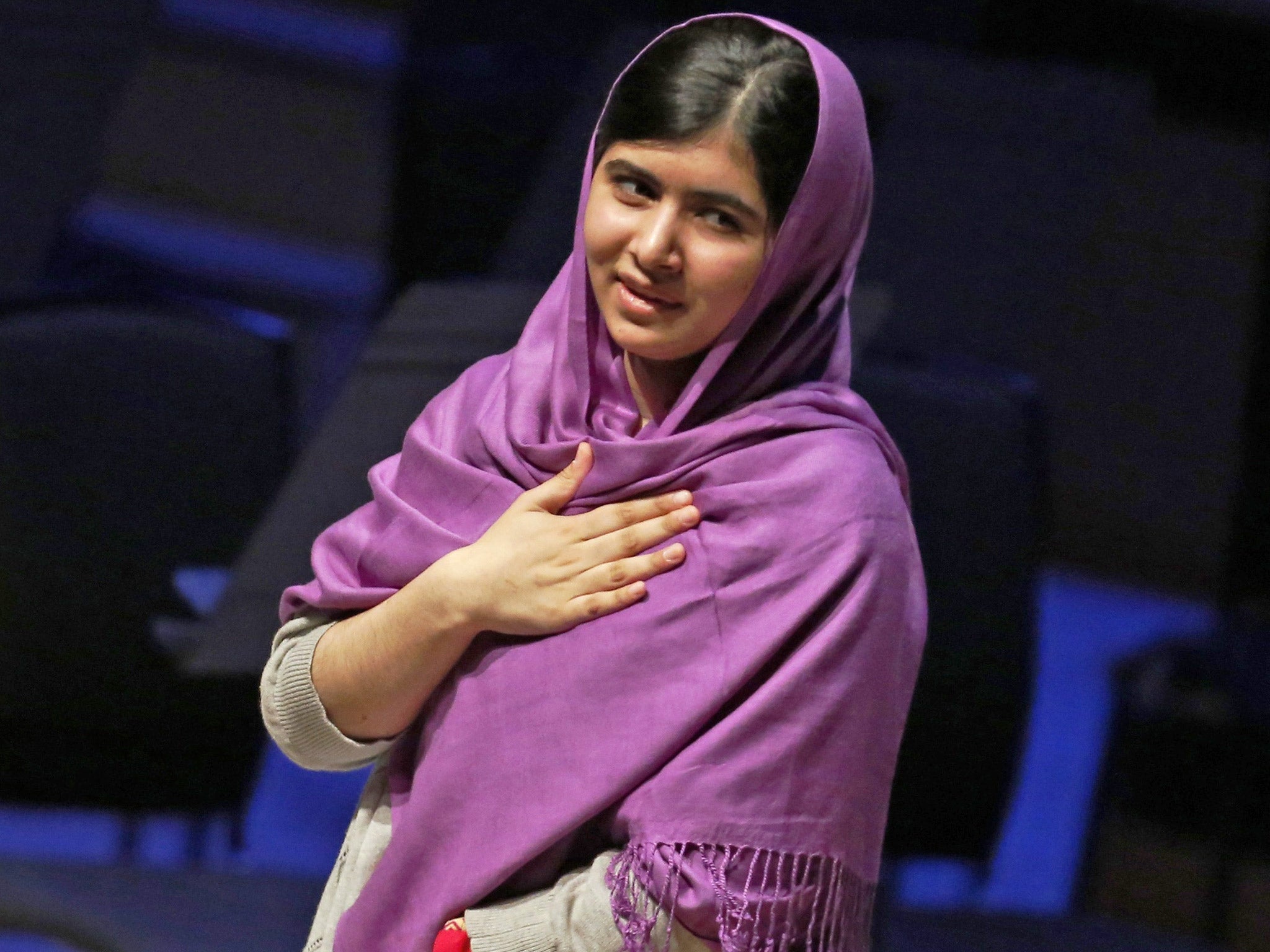Letter from Asia: A choral work honouring Malala unites Karachi and Crouch End
“I just thought the story of Malala and her struggle was very powerful. I thought it would be great to have it as a piece of music”


My name is Malala Yousafzai!
Watch me as I reach for the sky!
I want to live, I will not die!
I am Malala Yousafzai!
It was an idea that quickly gathered pace. A plan was hatched, emails were dispatched and a cross-cultural collaboration rapidly got under way. And in the past few weeks, a final polish and buff has been applied to the project – a choral work in honour of Malala Yousafzai.
In the days after the teenage Pakistani campaigner was shot and wounded by the Taliban in October 2012 and she and her father were flown to Britain for treatment, David Temple, the director of London’s Crouch End Festival Chorus, decided to commission a commemorative piece of music. Like many, he was struck by the teenager’s courage, her resilience.
“I just thought the story of Malala and her struggle was very powerful. I thought it would be great to have it as a piece of music,” said Mr Temple, the choir’s conductor and co-founder.
He approached James McCarthy, a London-based composer with whom he had worked before – on a piece about the plight of the 33 Chilean miners who were trapped underground at Copiapo for 69 days, and on a composition inspired by the life of the British codebreaker and mathematician Alan Turing.
Mr McCarthy was up for the challenge. But as he researched his subject, he recognised the problems he would face were he to try to create a voice for Malala himself. He realised he needed someone from Pakistan – a woman.
After looking at the work of various writers, poets and journalists, he decided on Bina Shah, a Karachi-based novelist. She had been outspoken in her support of Malala in the face of a backlash against the teenager in Pakistan that had caught many by surprise. “She was ready to take people on,” he said.
Unlike in popular music, where a song can be composed with either the words or music coming first, in choral music the words are the driving force, according to Mr McCarthy. “Everything comes from the words, everything stems from the rhythm of the words.”
Ms Shah said she had never previously written a libretto, or words for music, and yet she worked quickly, completing a draft in a day. “For me it’s primarily artistic,” she said, speaking from Karachi. “It’s an attempt to produce art from a very significant event. It was not political or journalistic, it was artistic.”
Ms Shah divided Malala’s life into five parts: her early years in the Swat valley; the arrival of the Taliban and their iron-clad rules that prevented girls from going to school; the diary she secretly kept and which was published by the BBC; the Taliban’s assassination attempt on her; and, finally, the message she has since been delivering to the world in speeches at the UN and during meetings with national leaders. Ms Shah sent the words to London last September.
“I could be a lot more emotional with this,” said Ms Shah, comparing how she set about writing the libretto with her previous projects.
Equipped with the text, Mr McCarthy got busy with the score. He changed some of the words to avoid the repetition of too many polysyllables, which can have a habit of sounding too strident. Elsewhere he repeated lines. Where he made changes, he sent them back to Ms Shah for her approval.
Improvising at his piano, he steadily built the music. “I spent many months making the music fit the words,” he said. “That was my job – to make the music do justice to them.”
The conclusion for the piece, a segment built around the line “We envelop you in love”, came after two hours at the piano, working around a chord shape until he was happy with it. He said Ms Shah’s line had jumped out at him from the page.
Mr McCarthy, 34, finished the score a couple of weeks ago. He emailed Ms Shah a copy of it along with an MP3 of the tune. She said she sobbed when she heard the music he had written.
Those behind the project hope the work can be heard by as many people as possible. They would particularly love it to be performed in Pakistan, perhaps even in the Swat valley.
But the work, called simply Malala and around 30 minutes in length, is set to receive its premiere on 28 October, when it will be performed by the Festival Chorus’s 70-strong orchestra, 130 adult singers and a choir of 70 children roughly the same age as Malala. Ms Shah has already been invited to London, as have 16-year-old Malala and her father.
“We are hoping Malala and her family will be able to come to the first performance,” said Mr Temple, who will conduct. “Her presence would be an inspiration to the performers.”
Join our commenting forum
Join thought-provoking conversations, follow other Independent readers and see their replies
Comments